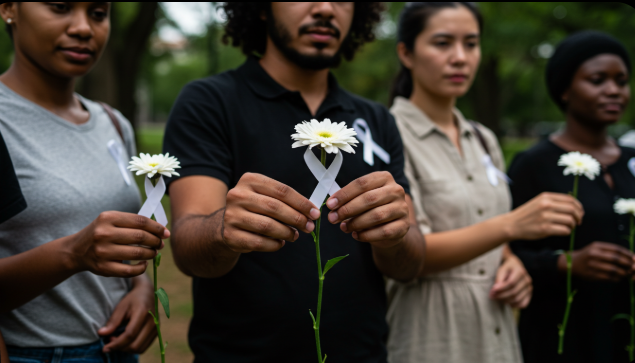Raising Awareness About Sexual Assault

Raising awareness about sexual assault is essential to educate individuals, support survivors, and work toward prevention. Here are several effective ways to raise awareness:
1. Educate Yourself and Others
- Learn about the signs, causes, and impacts of sexual assault.
- Share accurate information through social media, blogs, or community events.
- Host workshops or seminars in schools, workplaces, or community centers.
2. Support Survivors
- Listen to and believe survivors without judgment.
- Share resources for counseling, hotlines, and legal aid.
- Avoid victim-blaming and promote a culture of empathy.
3. Promote Consent Education
- Advocate for comprehensive sex education that includes consent.
- Teach people of all ages about boundaries and respectful relationships.
- Use social media campaigns to spread messages about the importance of consent.
4. Partner with Local Organizations
- Collaborate with nonprofits or advocacy groups focused on sexual violence prevention.
- Volunteer your time or donate to organizations that support survivors.
- Participate in events like Sexual Assault Awareness Month or Take Back the Night.
5. Use Social Media and Online Platforms
- Create or share posts, hashtags, or infographics that educate others.
- Share survivor stories (with their consent) to amplify their voices.
- Raise awareness about local resources and services available for support.
6. Organize Events
- Plan community events such as walks, fundraisers, or panel discussions.
- Host movie screenings or book readings that address the topic of sexual assault.
- Invite experts to speak on prevention, survivor advocacy, and legal rights.
7. Advocate for Policy Changes
- Support legislation that protects survivors and holds perpetrators accountable.
- Campaign for workplace or institutional policies that prevent and address sexual harassment.
- Write to local representatives to prioritize sexual violence prevention initiatives.
8. Challenge Harmful Norms
- Speak out against jokes, stereotypes, or media that trivialize sexual violence.
- Encourage open conversations about gender roles, power dynamics, and toxic behaviors.
- Promote healthy masculinity and gender equality.
9. Provide Resources
- Distribute materials like brochures, posters, and hotline numbers at schools, workplaces, and public spaces.
- Share information about local crisis centers, legal services, and medical assistance.
- Develop a resource guide that is accessible online.
10. Be an Active Bystander
- Learn how to safely intervene in situations where someone may be at risk.
- Encourage others to get trained in bystander intervention techniques.
- Share stories of successful interventions to inspire others.
By taking these steps, you can contribute to a culture that prioritizes respect, safety, and support for all individuals.
